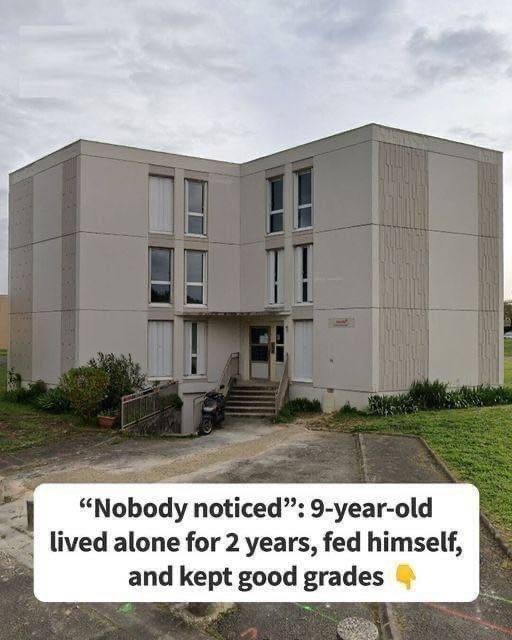Nine-year-old boy’s mother left him to live with her boyfriend; he spent two years living alone in a chilly apartment in southwest France. His mother relocated three miles away, leaving the young boy to fend for himself in an apartment in Nersac, France, close to Angoulême. The 39-year-old mother put the child in risk and was sentenced to six months in prison last week. The father of the boy, who lives in a different town, was not charged.
The youngster who was abandoned had times without electricity, warmth, or hot water between 2020 and 2022.
He made due by utilizing blankets and sleeping bags for warmth and washing in cold water. He turned to grabbing tomatoes from a nearby balcony and foraging among neighbors for food in order to survive. After worried neighbors eventually called the authorities, the kid was placed under protective custody.
The youngster lived a life of neglect and seclusion, but no one noticed because he went to school. in part because he did his schoolwork, kept his room tidy, and got good scores. Barbara Couturier, the mayor of the town, clarified that the youngster appeared to put on a shield. presenting the impression that everything was OK. “I believe he surrounded himself with a shield of assurance that everything is OK,” she added.
When the neighbors initially saw the problem, they sensed something wasn’t quite right.
When the boy’s mother heard from neighbors about her concerns, she disregarded them, saying she was taking care of her son and requested them to keep out of her personal affairs. Because the youngster could take care of himself, the locals said the negligence went unnoticed.
The abandoned child turned to stealing tomatoes from a nearby balcony and asking about for food among the neighbors during his two years of loneliness. The youngster was eventually placed in care after the worried neighbors contacted the police.
According to a classmate, the boy stayed at home most of the time, seldom left the house, and frequently ate and rode the bus alone. Using mobile data that demonstrated her sparse attendance at the apartment, the mother’s claim that she lived with her son was refuted throughout the trial. He admitted to his friends that he rode the bus and ate his meals by himself. He didn’t always stay at home and didn’t go out. The student said.
See Also: After Her Parents Abandoned Her, She Swore To Show Them Wrong — Now She Models For Vogue
Changing shame into relief
The neighbors felt bad about not recognizing the problem sooner. blaming the anonymity of contemporary living for helping the neglect to continue. “If a mother mistreated her child, it didn’t matter too much when there was a family and a community around them since everyone in the village and the rest of the family took care of the child. It’s not the same anymore,” a local citizen remarked.
What is the University of Nottingham’s position on desertion?
There is a conspicuous lack of a precise legal definition for child abandonment in ten EU nations (Bulgaria, Czech Republic, Denmark, France, Hungary, Lithuania, Poland, Romania, Slovakia, and the UK). The uncertainty and lack of clarity surrounding the definition of child abandonment present difficulties for this issue’s practical and academic endeavors.
A major contributing cause to the need for institutional care for children under three is child abandonment. Just 4% of children in Western European institutions were found to be abandoned, according to a comparison. In contrast, the percentage was substantially higher—32%—in Central and Eastern Europe. The largest percentages of abandoned children in institutional care were seen in Romania, Hungary, and Latvia. While the UK, Denmark, and Norway all stated that child desertion was uncommon.
EU nations are taking a number of steps to stop child desertion. Among these initiatives are:
Social assistance
Day-care facilities
Mother-baby units
Family planning services
Counselling services for mothers and/or families
Financial support
Programs targeting high-risk families and child identity
Parent ‘training centers’
Helplines offering support for mothers in need
Guidance on preventing child abandonment at maternity units
The presence of social workers in maternity units
Training for hospital staff to recognize and handle high-risk situations, providing positive counseling.
